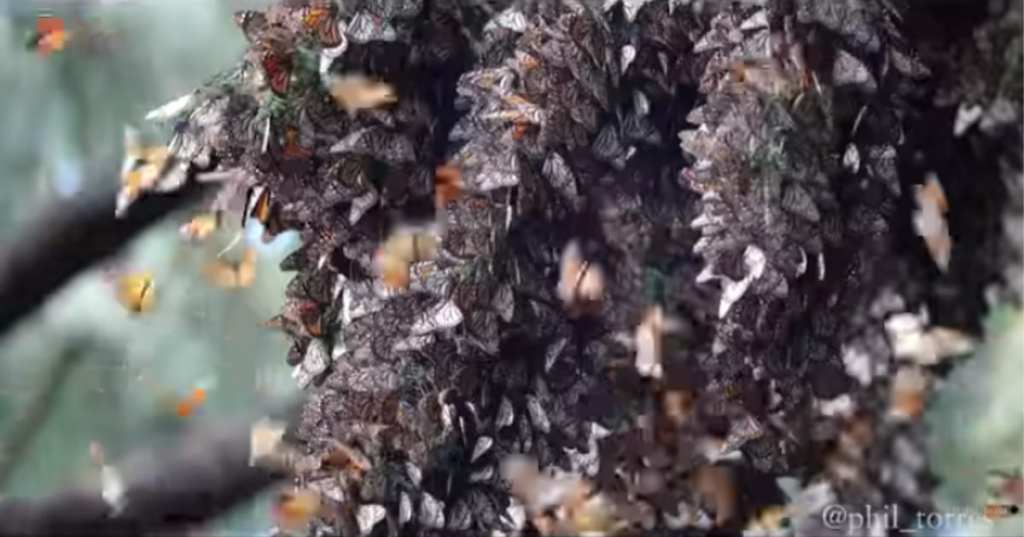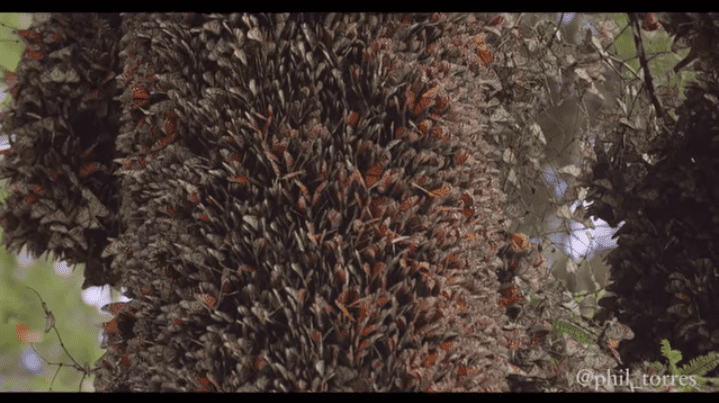If you’re someone who grew up in the migration path of monarch butterflies, then the pretty, fluttering insects probably have a special place in your heart (I know they do mine!).
My mother is a teacher and at the end of every summer we would stop on the way home from the lake to traipse through farmland, intent on the mature stalks of milkweed. We turned over leaves until we found the right caterpillars with the yellow, black, and white stripes, then carefully put them, along with more milkweed, into jars topped with cut up pantyhose.
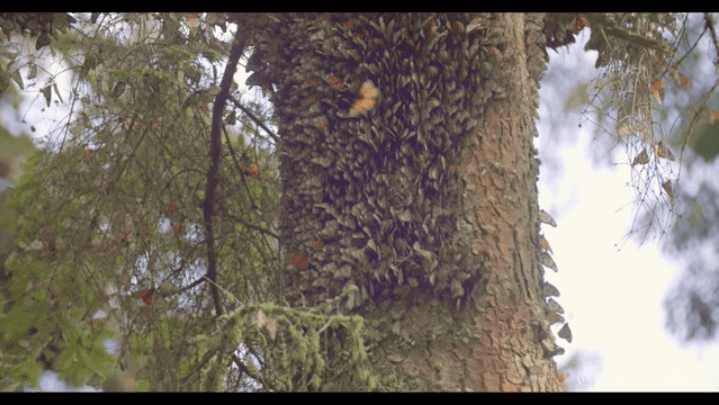
Image Credit: YouTube
We secured them with rubberbands, and though my mother took a couple to school, she always left one at home for us, too.
We watched and fed the caterpillar, watching it grow fatter and fatter until one day, it spun its cocoon.
Then, it emerged, orange and black and honestly kind of breathtaking as we let it go on the autumn breeze.
Now, the butterflies have disappeared from some parts of the United States, but still winter in en masse in Mexico and South America.
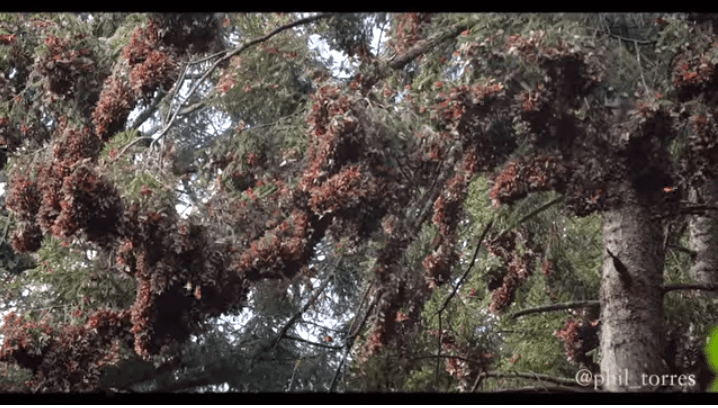
Image Credit: YouTube
In Mexico, they gather at the Monarch Butterfly Biosphere Reserve, an UNESCO-protected sanctuary, which is where entomologist and conservationist Phil Torres made a video later shared by The Kids Should See This.
The butterflies in the sanctuary completely cover the pine and oyamel trees, making the branches appear to flutter at first glance, and, according to Torres, is really something special to observe firsthand.

Image Credit: YouTube
“It’s not just visually stunning. It’s not just emotionally stunning… It sounds absolutely magical because you’ve never heard before the sounds of tens of millions of butterflies flying around you, because it only happens here. It’s one of the rarest sounds on Earth and you’re about to get a listen.”
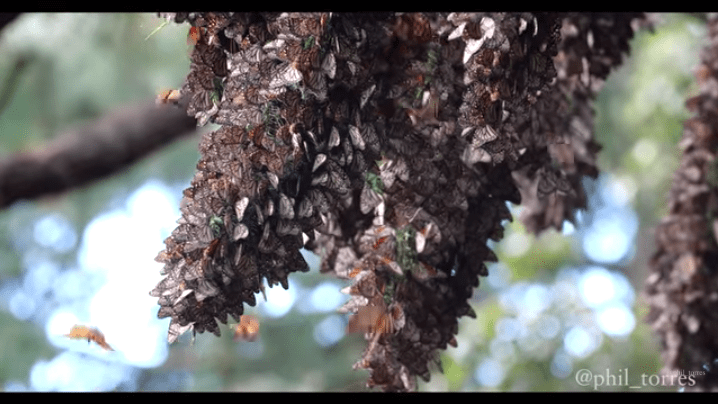
Image Credit: YouTube
Around the 5:40 mark in the video, turn up your headphones and enjoying surprisingly soothing low buzzing sound created by thousands of butterflies.
I hope these butterflies can find a way to survive in our brave new world, and that generations to come can help them mature, then set them free to their winter adventures.
What do you think about what you just heard? Let us know in the comments!

